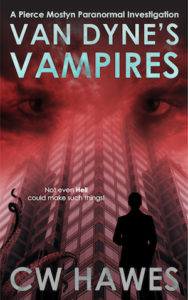This past Friday morning, I was checking Author Central for new reviews and was surprised to see the most complementary review by Mark Scott Piper:
Great Characters, a Complex Plot, and Plenty of Surprises
But Jesus Never Wept is the third book in CW Hawes’s Justinia Wright Private Investigator Mysteries series. You don’t need to have read the first two to understand the characters and their steady and unsteady relationships. This one is a good read all on its own.
The title implies the focus of the novel may be about exploring the basic tenants of Christianity, but it’s not. Yes, there is an ongoing dialogue between the characters about whether Jesus ever existed in physical form, but this issue doesn’t carry the novel. In fact, the question of faith works more as a metaphor for examining and trying to understand what’s real and what’s not with the gory crimes and relentless criminals the characters must face. Like life, there are always questions here. And not all of them are answered by the end of the book.
The plot is at once intriguing and complex, and Hawes seamlessly mixes the basic murder investigation with an unexpected profusion of other themes and references including, the basics of the Christian religion, family dynamics, love relationships, high-end online prostitution, and the wrath and violence of the Yakuza crime syndicate. Not an easy task, but Hawes pulls it off with aplomb. And by telling the tale from Harry Wright’s point of view, Hawes provides some humor, even occasional sarcasm to the narrative. A nice touch, especially given the gruesome murders and constant threats from powerful enemies.
Hawes’s characters are memorable but never “average.” Justinia, Harry, Bea, and Cal all have their quirks and unique abilities. The relationships between all four have been established before in the series, and we can assume they develop further in this one. Even the minor characters and victims prove to be much more complex than they seem. I would be remiss if I didn’t mention the bone-chilling weather in Minnesota. Dealing with the ice, snow, and painfully low temperatures colors the action and the attitude of the characters in the book.
The descriptions of the weather also help pull the reader into the novel, even those of us who’ve never been to Minnesota. That’s also true of the detailed descriptions of the many meals Justinia, Harry, and Bea share. Harry is a gourmet cook, and you’ll often feel the compelling desire to sit down with them and get a taste or two of his latest culinary delight.
Jesus Never Wept is a good read, and the skill and insights of Hawes turn the standard murder mystery plot into something more—and something better. Highly recommended.
Mr. Piper is a fellow author. I don’t know him, even though we do follow each other on Twitter.
I will say this: I was completely blown away by his review.
But Jesus Never Wept is one of my favorites in the Justinia Wright series. So to discover someone who appreciates the metaphors I put in the book was a delight. I’m not sure that my feet touched the floor all day.
Over the course of the 8 years I’ve been an independent author-publisher, I’ve seen a significant number of writers come and go.
I suspect most leave writing because they don’t strike it rich or get many, if any, accolades. A significant number of writers complain about the lack of support from family and friends in particular.
All I can say is — I hear you.
The arts are tough rows to hoe. As the song says, “One is the loneliest number”.
Being any type of artist is usually a lonely affair.
If the only reason you, my fellow writers, are writing is to get money or accolades, then you are probably going to meet with disappointment.
The median income for all published authors, according to a 2018 survey by Authors Guild, was $6,080.
The median income for all published authors based solely on book-related activities was $3100.
I’ll tell you right now, I’d give my eye teeth to earn $3100 in royalties for one year. Nevertheless, to put that into perspective, that is 2 months rent and change.
As for support and accolades, I’d probably die from a heart attack if one of my family members or one of my friends told me they’d read a book of mine and liked it. They’d be much more likely to tell me what was wrong with it.
Yes, one is the loneliest number.
But we aren’t truly alone. Every one of us who puts pen to paper and then sends those books and stories out into the world — has an audience.
Our audience may be small.
It may be large.
Doesn’t matter.
What matters is that we do have an audience.
Sometimes we simply need to be patient and diligent so we can find each other.
I don’t know Mr. Piper. But I do hope to get to know him in the coming days, months, and years.
One may be the loneliest number. But the loneliness ends with two.
Comments are always welcome. And until next time, happy reading!
 CW Hawes is a playwright, award-winning poet, and a fictioneer, with a bestselling novel. He’s also an armchair philosopher, political theorist, social commentator, and traveler. He loves a good cup of tea and agrees that everything’s better with pizza.
CW Hawes is a playwright, award-winning poet, and a fictioneer, with a bestselling novel. He’s also an armchair philosopher, political theorist, social commentator, and traveler. He loves a good cup of tea and agrees that everything’s better with pizza.
If you enjoyed this post, please consider buying me a cup of tea. Thanks! PayPal.me/CWHawes
Share This!